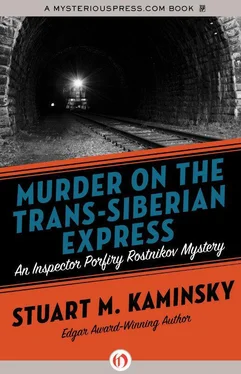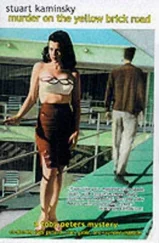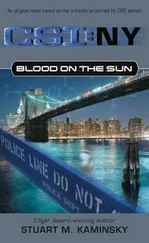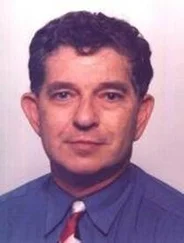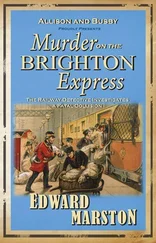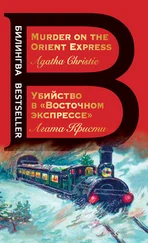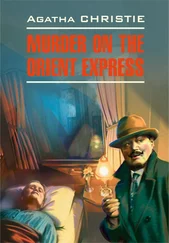Stuart Kaminsky - Murder on the Trans-Siberian Express
Здесь есть возможность читать онлайн «Stuart Kaminsky - Murder on the Trans-Siberian Express» весь текст электронной книги совершенно бесплатно (целиком полную версию без сокращений). В некоторых случаях можно слушать аудио, скачать через торрент в формате fb2 и присутствует краткое содержание. Год выпуска: 2012, Жанр: Полицейский детектив, на английском языке. Описание произведения, (предисловие) а так же отзывы посетителей доступны на портале библиотеки ЛибКат.
- Название:Murder on the Trans-Siberian Express
- Автор:
- Жанр:
- Год:2012
- ISBN:нет данных
- Рейтинг книги:3 / 5. Голосов: 1
-
Избранное:Добавить в избранное
- Отзывы:
-
Ваша оценка:
- 60
- 1
- 2
- 3
- 4
- 5
Murder on the Trans-Siberian Express: краткое содержание, описание и аннотация
Предлагаем к чтению аннотацию, описание, краткое содержание или предисловие (зависит от того, что написал сам автор книги «Murder on the Trans-Siberian Express»). Если вы не нашли необходимую информацию о книге — напишите в комментариях, мы постараемся отыскать её.
Murder on the Trans-Siberian Express — читать онлайн бесплатно полную книгу (весь текст) целиком
Ниже представлен текст книги, разбитый по страницам. Система сохранения места последней прочитанной страницы, позволяет с удобством читать онлайн бесплатно книгу «Murder on the Trans-Siberian Express», без необходимости каждый раз заново искать на чём Вы остановились. Поставьте закладку, и сможете в любой момент перейти на страницу, на которой закончили чтение.
Интервал:
Закладка:
He had tried to talk to the person whose footsteps he heard. He had tried each time.
“What do you want?” he had demanded the first time. “Money? Call my father. He’ll pay. Just get it done.”
No answer. Just a door closing. The next time it was, “Get me something to wear, you bastard, you gol-uboy, queer fucking bastard.”
No answer. Just a door closing. Then, after hours of light and blaring music, “Leave the lights on. Keep the music coming. It gives me something to do, something to sing and beat.”
No answer. Just a door closing. The last time it had been but his hoarse croak, “Turn it off. No more light. No more music. If I don’t get some sleep, you will kill me.”
No answer, so he added, “The hell with you. Drive me mad. Drive me crazy. I will go okhvet, nuts, but I will emerge a mad genius, more popular than ever, and I will find you and beat your head in with my guitar, drag you on stage and beat you till your putrid blood and brains run and smell. See, you inspire me. I have just written the words to a new song. I will call it ‘Surviving the Cage.’”
This time, just before the door closed, he heard a sound in the darkness, perhaps a laugh. It wasn’t much but he held onto it, tried to place it. But before he could, the lights were on and he heard his own voice screaming over the speaker, “Kill your mother. Kill your father. You never asked them to be born.”
He reached through the bars for the cracked metal bowl of brown mush and the cup of warm water. As he ate, he rocked his head. He knew it was only a matter of time before he was completely mad. The problem was that he did not know how much time had passed.
He stopped rocking. An idea had come. A project. Something to keep him busy. Yes. He smiled and looked beyond the bars at the far wall behind which he was certain they were watching him.
He touched the fuzz of his growing beard, leaving a stigma of brown mush, and smiled cunningly toward the wall.
The Naked Cossack had a plan.
Chapter Seven
Zelach had dined with his mother in their small apartment which she kept impeccably neat and clean, smelling and looking like something from a different era, a different place. The place it looked like was an apartment in Voronezh south of Moscow, near the Ukrainian border. Zelach’s mother had been born there, a gypsy who did not look like one and who escaped to marry a slow-witted but decent Moscovite policeman who thought her quite beautiful. Akardy Zelach had been born six months after they had married. She had never, to this very day, told him of his gypsy blood. There was no reason to do so. The boy had looked like his father the moment he was brought painfully into the world.
Zelach’s mother loved her son and worried about him. He had talents but no great intellect. He was a follower, and when she died she wondered whom he might follow.
They ate boiled potatoes, thick fish soup, and bread with water.
“I must work tonight,” he said as he ate.
“I know,” she said.
He had not told her before this moment, but her comment did not surprise him. She almost always knew when he had to work, when his mind was on something other than the meal or the television screen. She usually knew what he was thinking. This did not disturb him. It was reassuring.
The words to one of the Naked Cossacks songs kept running through his head:
Spit on your friends. Shit on your friends. They’ll do the same to you.
Just clasp their hands and walk in step when you agree on what to do.
On what to do, on what to do, and who to do it to.
“Akardy,” his mother said. “Yes.”
“You are bouncing your head while you eat.”
“A song I can’t … it just …”
“Listen to the song,” she said, tearing off a piece of bread. “It may tell you something.”
Emil Karpo ate alone in his room, which was about the same size as Misha Lovski’s cell. The room held very little furniture-a cot near the single window whose shade was almost always pulled down, a chest of drawers, a free-standing simple wooden closet, a desk in front of a floor-to-ceiling bookshelf filled with files of cases he had worked on, open and closed cases, and cases that he had never been assigned but were still open.
What free time Karpo had, he gave to those files and their challenge.
He ate one cucumber, one tomato, one onion, a thick slice of unbuttered bread, and a piece of plain boiled chicken he had prepared on his hot plate on the dresser.
There were two lights in his room, one a bulb in the ceiling, the other a small table lamp.
The only color in the room was a painting above the dresser, a painting of and by Mathilde Verson, a gift from her. The woman in the foreground looking up the hill to a barn was definitely Mathilde, though her face was turned. Mathilde, the woman of the city, the part-time prostitute whom he had paid once every two weeks for her services until she had stopped taking the money and they had become something more than client and provider. That lasted three years, four months, and six days. She was shot in the crossfire between two Mafias, gangs disputing territory or trying to make a point which may not have been clear to either gang.
The phone next to the computer rang. He picked it up and said, “Yes.”
“Emil,” came Rostnikov’s voice. “I am going on a train ride.”
Karpo said nothing.
“Sasha is going with me. To Siberia.”
“Yes.”
“While I am gone, you are in charge.”
“I understand.”
“I left the file on the subway attacks on your desk.”
“I shall read it in the morning unless you feel I should get it immediately.”
“No, just be acquainted with the case, should you be needed. In an emergency, you can reach me on the Trans-Siberian Express, the number two. I’ll be in compartment twelve, car three-two-seven-eight.”
Karpo did not bother to write the number. He would remember it.
“Yes,” he said.
“Emil, as I recall, you can see the sun over the hill in your painting of Mathilde. Is that correct?”
Karpo did not have to turn to the painting.
“That is correct.”
“Then I have a very important question. Is the sun rising or setting? Have you ever asked yourself that question?”
“No,” Karpo said, now turning to the painting.
“Look at it with fresh eyes and tell me what you think when I return.”
“I will do so.”
“You are working on the Lovski case tonight?”
“Yes. Zelach and I are going to a club called Loni’s where Lovski was apparently last seen.”
“Find him,” said Rostnikov. “And don’t forget the sun.”
He hung up and Karpo turned his wooden chair so that he could face the painting above his dresser.
Pavel Cherkasov dined, as he had planned, at the Uzbekistani restaurant on Neglinnaya Street. There was a good crowd, but Pavel had assured himself a table near the wall with a few bills passed to the maître d’. With a bottle of Aleatiko wine to guide him, Pavel, as planned, had started with maniar, moved on to shashlik, followed by an order of Tkhum-dulma. He ordered a second bottle of wine and turned to the patrons at the next table, a well-dressed couple in their fifties.
“A glass of wine?” he offered.
The man smiled and Pavel motioned to the waiter, who came over quickly. He knew Pavel from previous visits, knew the man would leave a big tip if he were served quickly and if the waiter smiled or laughed at his jokes.
“The other night I came in here,” Pavel said in a whisper to the couple at the next table after the waiter had moved to get two clean glasses. “I said to the waiter, ‘I’m so hungry I could eat a rat.’ And the waiter replied, ‘Then you’ve come to the right place.’”
Читать дальшеИнтервал:
Закладка:
Похожие книги на «Murder on the Trans-Siberian Express»
Представляем Вашему вниманию похожие книги на «Murder on the Trans-Siberian Express» списком для выбора. Мы отобрали схожую по названию и смыслу литературу в надежде предоставить читателям больше вариантов отыскать новые, интересные, ещё непрочитанные произведения.
Обсуждение, отзывы о книге «Murder on the Trans-Siberian Express» и просто собственные мнения читателей. Оставьте ваши комментарии, напишите, что Вы думаете о произведении, его смысле или главных героях. Укажите что конкретно понравилось, а что нет, и почему Вы так считаете.
